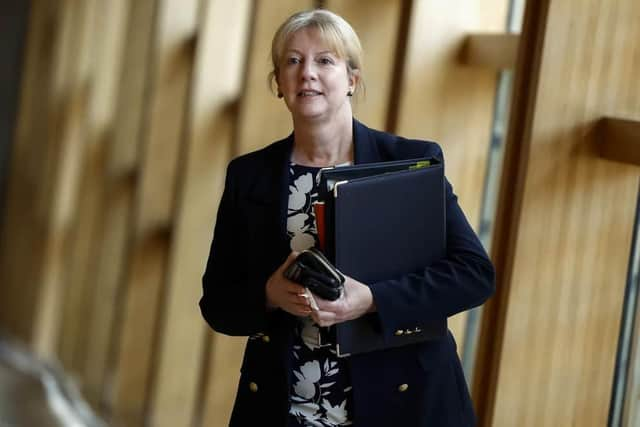Council leaders ‘may face challenges maintaining schools after Scottish Budget’, analysis shows
Council leaders may face “challenges” in maintaining and improving schools and meeting net zero targets as a result of the Scottish Budget, according to impartial analysis.
The Scottish Parliament Information Centre (SPICe) said the tax and spending plans contained "a lack of clarity" on issues such as public sector reform.
Advertisement
Hide AdAdvertisement
Hide AdShona Robison, the deputy first minister and finance secretary, published the draft Budget on December 19 amid warnings it would be the most difficult of the devolution era. She said it had involved making “wicked decisions and choices”.


SPICe said spending on health and social security had been prioritised, while revenue funding for councils – used for day-to-day spending such as salaries – would increase by 5 per cent in real terms. However, local authority capital spending – used for new infrastructure and repairs – will fall significantly.
"Despite a positive settlement for the revenue budget for local authorities, capital budgets are seeing a significant reduction,” the body said in a new report. “This could present challenges in maintaining and improving the school estate and in delivering against net zero targets.”
Moray Council leader Kathleen Robertson said her local authority had plans to replace both Forres Academy and Buckie High School, with the Government only providing support for the Forres scheme, under the learning estate investment programme.
She said: "We've still got to pay the upfront costs of Forres Academy – we don't get the 50 per cent funding until it is built, so we've still got to find the money for that school, and the school that hasn't been awarded funding. They've been estimated at between £80 million and £90m to build each.
"If that is what the detail is saying, for us, we've got two major builds coming up in the next two to three years, which will be our capital budget. If there is a squeeze on that then we will have to look at what else is in our capital budget."
The Scottish Government previously said it would publish revised capital spending plans in light of rising costs from inflation and reduced funding from UK ministers. SPICe said no revised plans were published, adding: "There was also a lack of detail on public service reform and workforce planning. Despite stating in advance of the Budget, that ‘the size of the workforce will have to reduce’, there was no information provided in the Budget as to what that might mean in practice.”
Elsewhere, SPICe highlighted that no public sector pay policy had been published with the Budget for the second year in a row.
Advertisement
Hide AdAdvertisement
Hide Ad“The Scottish Government stated that it will ‘set out pay metrics for 2024/25 following the [UK] Spring Budget", though this is scheduled for 6 March 2024 and likely to take place after the Scottish Budget Bill for 2024/25 has been voted on,” it said. “Given that public sector pay makes up over half of the Scottish resource budget, this presents another risk to the Scottish Budget. In the previous and current financial years, significant revisions to budget plans were required in order to accommodate in-year pay deals.”
SPICe said Budget documents also do not allow for an understanding of how spending will contribute to meeting Scotland's climate targets.
A Scottish Government spokesman said: “The Scottish Budget targets funding to people and public services following a ‘worst-case scenario’ UK Government Autumn Statement, as described by the deputy first minister, which failed to provide the investment needed in services and infrastructure.
“It includes record funding of over £14 billion for councils in 2024/25 – a real-terms increase of 4.3 per cent compared with this year’s Budget – should they agree to freeze council tax. The Budget also invests more than £5bn in building a fair, green and growing economy, which creates jobs, supports businesses and helps finance Scotland’s public services and the transition to net zero.
“Creating financially sustainable person-centred public services is one of our key priorities. That’s why we are working across the public sector to reform services, ensuring they are sustainable, efficient and meet the needs of the people of Scotland.”
Comments
Want to join the conversation? Please or to comment on this article.
